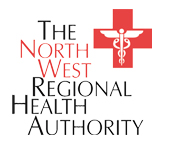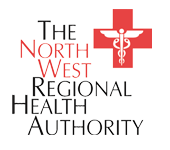COVID-19 is a newly discovered contagious disease caused by the SARA-CoV-2 virus. In the majority of people, it presents with a mild flu like illness including fever and cough, quite often with fatigue and muscle pain. There is no evidence that the kidneys are affected with mild symptoms which is the most common presentation.
How can COVID-19 affect the kidneys? There are two main ways in which the kidneys can be affected:
- Amongst people who develop severe infection and require hospitalization.
- People with known chronic kidney disease and dialysis patients who become infected with COVID-19
- People who develop severe infection and require hospitalization
When people with severe COVID-19 infection are admitted to hospital, their kidneys seem to be involved in 25-50% of the times. The commonest way in which this presents is blood or protein being detected in the urine. The protein in the urine is sometimes detected in large quantities. A smaller number (15%) can develop a decline in kidney function. Some patients will have a combination of blood, protein and decline in kidney function. The reason that this occurs is still poorly understood but is likely linked to the immune response to the virus but possibly due to direct injury of the kidneys from the virus. Imaging of the kidneys in these patients do support inflammation and swelling of the kidneys. What does this all mean? Unfortunately, involvement of the kidneys in severe or critical infection serves as an independent marker for a decreased chance of survival. - People with known chronic kidney disease and dialysis patients who become infected with COVID-19
It is now well established that people who are most at risk of getting severe COVID-19 infection include the elderly, those with cardiovascular disease, high blood pressure, diabetes, chronic lung disease and men seem to be more severely affected than women. A person with chronic kidney disease tends to have a combination of some or all of these risk factors. They therefore represent the highest risk group. Dialysis patients, in particular, have additional challenges, as they must travel to their dialysis units to receive treatments and dialysis patients are treated together and so are at risk of gathering. It is extremely important that COVID-19 does not reach or spread within dialysis units. Prevention is of extreme importance.
A dialysis patient must follow the rules below:
- Do NOT MISS your dialysis. During these times, your treatments are even more important to prevent fluid buildup on your lungs
- Comply with diet, medications and care of your vascular access. It is extremely important to stick to your diet especially with regards salt and fluid restrictions. Take all your medications as prescribed. For those with a perm catheter, follow the instructions of your dialysis nurse. This must be done to avoid visits to the hospital.
- When you are not at dialysis, STAY AT HOME.
- Please follow the instructions of the dialysis unit. Stick to your dialysis times. If you are early for example, wait in your vehicle or outside until it is your scheduled time. Dialysis units have been putting in preventative measures such as hand washing on arriving and leaving the unit as well as social distancing. FOLLOW THE INSTRUCTIONS of your unit.
- If you develop NEW cough or New Shortness of breath with a fever or sore throat, do not come to the dialysis unit. Call your unit first and they will give you the necessary instructions.
For the family and caregivers of dialysis patients, you must follow these simple rules:
- Wash your hands frequently with soap and water or use alcohol-based hand sanitizer
- Frequently clean the hard surfaces that are used in your home
- Cover your nose and mouth with disposable tissue when you cough or sneeze. Discard the tissue immediately.
- Cough and sneeze into the crook of your elbow if you do not have a tissue
- Avoid close contact with people who have flu-like symptoms
- STAY AT HOME. When you do have to go out, practice social distancing.
- If you develop fever, cough or flu-like symptoms, you must completely isolate yourself from the person on dialysis ad notify the dialysis unit. Otherwise, follow the instructions given to you from the Ministry of Health or your local Healthcare center.
The Dialysis Units, their doctors, nurses and all their affiliated staff are working extremely hard to put measures in place, should dialysis patients develop COVID-19. However, such resources are extremely limited. Protecting yourself as a dialysis patient is the most effective way to deal with COVID-19.
Dr Emile Mohammed
Consultant Nephrologist, Port of Spain General Hospital








